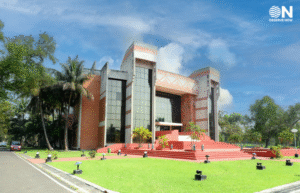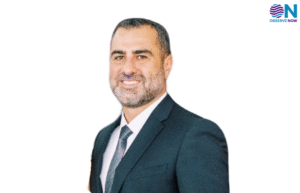In every state, revenue policies play a critical role in shaping the state’s fiscal landscape, encompassing a diverse array of strategies aimed at bolstering revenue collection and ensuring efficient management. However, these policies encounter multifaceted challenges, ranging from widespread tax evasion to bureaucratic inefficiencies.
Upholding transparency and enhancing efficiency within the revenue administration framework stand as paramount objectives, crucial for fostering public trust and optimizing fiscal resources. Addressing these challenges requires a concerted effort to streamline processes, leverage technology for improved data management, and enact stringent measures to curb malpractices, thereby laying the foundation for a more robust and accountable revenue system, In this regard Shivani Babbar, ObserveNow Media interacted with Naveen Kumar, Revenue Secretary/ Relief Commissioner, Government of Uttar Pradesh.
Below are a few excerpts of the interview:
Can you provide an overview of the current revenue policies implemented in Uttar Pradesh, especially any recent changes or updates?
The Revenue Department of the Government of Uttar Pradesh has enacted the Uttar Pradesh Revenue Code 2006 and the Uttar Pradesh Revenue Code Rules 2016, applicable statewide. Notably, Section 89 of the Revenue Code and Rule 94 of its accompanying Rules have simplified land acquisition processes by eliminating the need for extensive documentation beyond the 12.5-acre limit. Furthermore, the mutation process has been streamlined, automatically initiating applications upon property registration at sub-registrar offices, thus removing the necessity for separate submissions. Additionally, provisions for deemed approval in land conversion, revised fee structures, elimination of boundary wall requirements for land use conversion, and the delegation of authority for land exchange for industrial or public interests underscore significant reforms within the regulatory framework.
Moreover, the Uttar Pradesh government has strategically decided to lease land to the Uttar Pradesh New & Renewable Energy Development Agency (UPNEDA) for the establishment of solar energy plants. This initiative, governed by the Uttar Pradesh Solar Energy Policy 2022, sets a lease rate of Rs. 1 per acre per year for a 30-year duration, aiming to promote renewable energy development in the state.
How is the state addressing challenges related to revenue collection and management, considering the economic landscape and recent developments?
The state government has taken proactive steps to tackle issues pertaining to revenue collection and management. In Uttar Pradesh, there has been a concerted effort to modernize and streamline various procedures. This involves the adoption of digital platforms for tax payments, the conversion of land records into digital formats, and leveraging technology to enhance oversight and ensure adherence to tax regulations.
Moreover, the government of Uttar Pradesh is consistently evaluating and refining its revenue policies to align with evolving economic landscapes and address emerging obstacles. This ongoing review process underscores a commitment to adaptability and responsiveness in navigating the complexities of revenue management.
Are there any specific initiatives or programs aimed at promoting transparency and efficiency in revenue administration within the state?
The Uttar Pradesh Revenue Department has instituted clear timelines within the UP Revenue Code 2006 to expedite the processing of various applications, aiming to enhance transparency and efficiency in revenue administration throughout the state. These guidelines delineate specific responsibilities and deadlines for different officials involved in land-related matters. District Magistrates, Tehsildars, Sub Divisional Magistrates (SDMs), and other relevant authorities are mandated to address applications for land purchase, mutation, conversion, demarcation, transfer, and exchange within stipulated timeframes, ranging from 45 to 90 days depending on the nature of the application and its complexity. These measures are intended to streamline the administrative processes and ensure timely resolution of land-related matters in Uttar Pradesh.
Under these regulations, District Magistrates are tasked with overseeing applications for land purchase, transfer, and exchange, ensuring completion within designated periods. Similarly, Tehsildars and SDMs are entrusted with processing mutation, land use conversion, demarcation, and exchange applications within specified timeframes. The adherence to these timelines is crucial for maintaining accountability, facilitating smooth land transactions, and fostering trust between the government and citizens. By implementing these streamlined procedures, the Uttar Pradesh Revenue Department aims to uphold fairness, transparency, and efficiency in land administration across the state, ultimately benefiting all stakeholders involved in land-related processes.
What steps is the Revenue Department taking to encourage digitalization and technology adoption to streamline revenue-related processes?
The Revenue Department of Uttar Pradesh has taken significant steps to digitize and streamline its processes. They’ve digitized land records and maps, making them accessible online, reducing the need for physical visits to the revenue office. Mutation processes are now automated, initiated automatically upon property registration, simplifying procedures. Revenue courts have transitioned to online platforms for generating cause lists and summons, enhancing efficiency and transparency. All application forms are now available online, and only digital submissions are accepted, with orders issued exclusively through online channels. These advancements extend to various applications like land acquisition and use conversion, integrated with the state’s single-window system, Nivesh Mitra, streamlining processes further. Overall, these efforts aim to modernize and improve revenue-related procedures in Uttar Pradesh through technology.
In the context of promoting economic growth, what measures is the state taking to attract investments and ensure a conducive environment for businesses?
The Revenue Department of the Government of Uttar Pradesh has introduced various initiatives to promote investment and create a conducive business climate. These initiatives include simplifying the procedure for acquiring land exceeding 12.5 acres, as detailed in Section 89 of the Uttar Pradesh Revenue Code 2006. Additionally, they have introduced provisions for automatic approval if the Sub-Divisional Officer fails to respond within 45 days to requests for converting agricultural land to non-agricultural use, as per Section 80 of the same code. Moreover, the previous fees for land use conversion have been replaced with a fixed fee of INR 50 plus a 1% stamp duty. Furthermore, the authority of the State Government to exchange reserved land for industrial or public purposes, as outlined in Section 101 of the Uttar Pradesh Revenue Code 2006, has been delegated to the Divisional Commissioner. The Uttar Pradesh Revenue Code 2006 now also sets out specific timelines for processing applications, enhancing transparency and efficiency in the process.
Can you share information on any recent reforms or legislative changes that impact the revenue structure or administration in Uttar Pradesh?
In Uttar Pradesh, the Revenue Department has authorized Tehsildars with the authority of Sub Divisional Magistrate to address encroachments on village community land by following the legal procedures outlined in Section 67 of the Uttar Pradesh Revenue Code 2006.
How does the department engage with local communities to gather feedback, assess needs, and ensure that relief measures align with the unique requirements of different regions within Uttar Pradesh?
To achieve this objective, the Relief Commissioner’s Office within the Revenue Department has introduced several measures. Firstly, Aapda Mitra have been appointed in every district to gather input from the local populace. Secondly, Bal Mitra have been identified at the village level through the Bal Taranveer Scheme to prevent drowning incidents and 2950 public address systems are being installed to effectively communicate disaster warnings to communities.





























